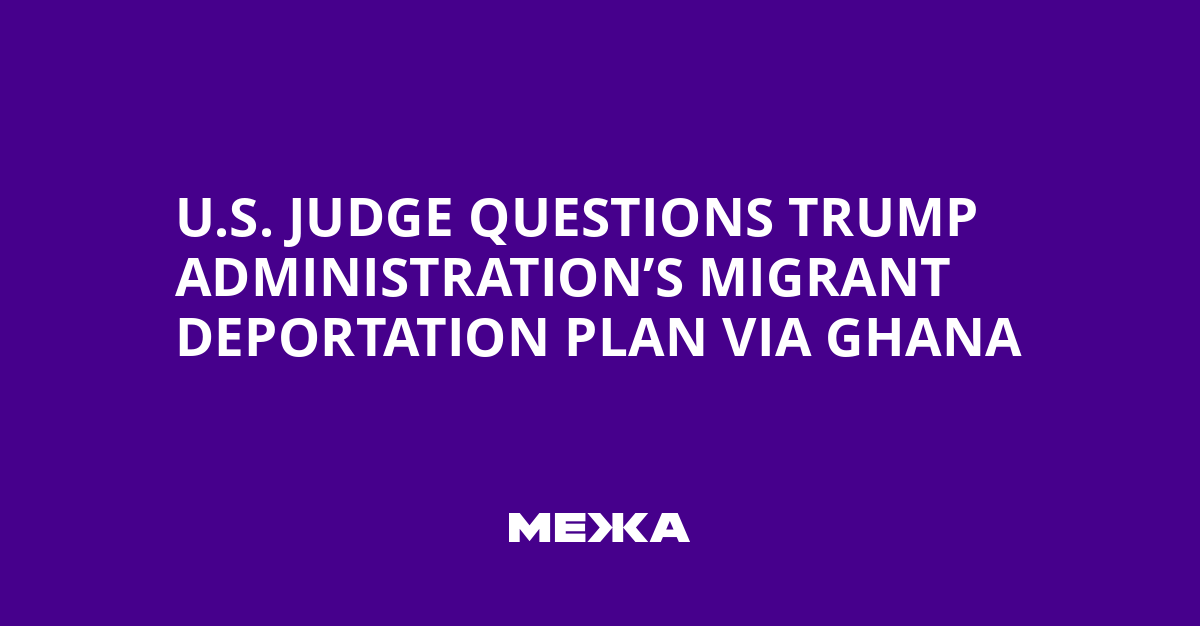On Saturday, a United States federal judge expressed concern that the Trump administration appears to be attempting to circumvent the current court-ordered bans on deporting five African migrants. Under the plan, they were to be sent first to Ghana, and then, possibly, redirected to countries where they could face torture or the death penalty. Such actions have raised new legal questions about the policy of moving migrants through countries that are not their countries of origin.
“Circumventing existing U.S. court orders on deporting five African migrants to their countries of origin by sending them first to Ghana, which could then redirect them to countries where they could face torture or the death penalty.”
– Associated Press
Key Aspects of the Verdict and Next Steps
Judge Tanya Chutkan of the federal court tasked the government with explaining in detail how exactly they plan to ensure that Ghana does not evade domestic court rulings. Specifically, one of the migrants had already been evacuated from Ghana to The Gambia, where a U.S. court found return to be impossible.
The handling of this case has become another legal challenge to the administration’s policy of transporting people to countries that are not their origins, including El Salvador, Panama, Costa Rica, and several African countries, amid efforts to combat illegal immigration.
Elianis Perez of the Department of Justice told Chutkan that Ghana pledged not to allow violations. However, she stressed that the judge does not have authority to regulate the conduct of another country and noted that the U.S. Supreme Court this summer allowed the administration to continue sending migrants to countries that are not their origins, even if they had no opportunity to raise concerns about torture.
Lee Gelernt of the American Civil Liberties Union compared this situation to the Kilmar Abrego García case, in which he was wrongly deported to El Salvador, and later it was claimed that return was impossible. After numerous court proceedings, the administration allegedly facilitated García’s return, who has since returned to the United States and is fighting new charges of human trafficking and other deportation attempts.
“This seems to be a concrete plan to circumvent these obligations,” Chutkan said about sending migrants to Ghana. “What is the government planning to do next? And please don’t tell me you have no control over Ghana, because I know.”
– Judge Tanya Chutkan
Subsequently, Chutkan issued an order requiring the government to file by 9 p.m. Eastern Time a detailed declaration of the steps they are taking to ensure that other migrants are not unlawfully sent through Ghana to the countries of their origin.
